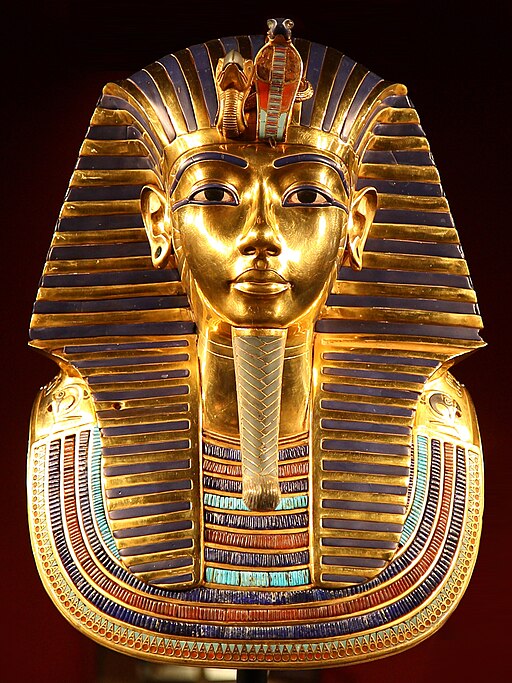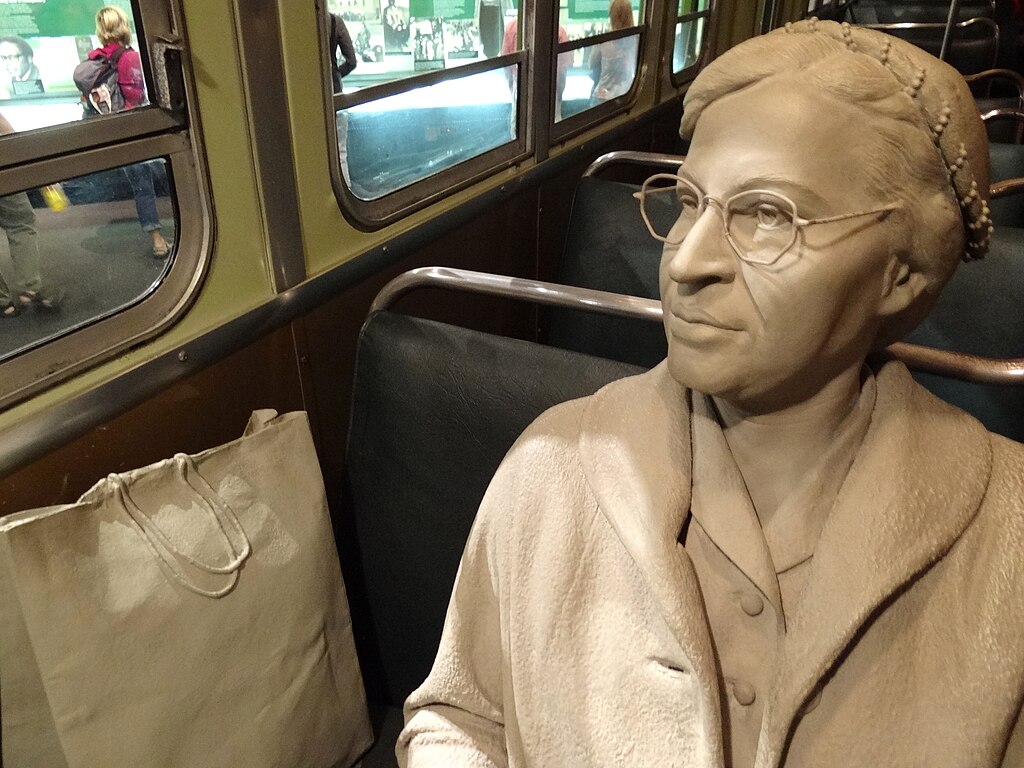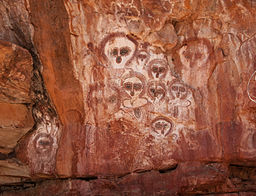“Vulcan Presenting Venus with Arms for Aeneas” by François Boucher depicts the god of the forge from ancient Roman myth, presenting the Roman goddess of love, with a sword for Aeneas, her son.
It represents a muscular Vulcan with a blacksmith’s hammer and tools, on the ground in the right. He is offering up to the more celestial Venus the weapons he has forged for her son.
Her son is the Trojan hero and the ancestor of Romulus and Remus, who founded ancient Rome. Boucher created this theme as the basis for one of a set of tapestries on “The Loves of the Gods.”
Boucher is known for his idyllic and voluptuous paintings on classical themes and decorative allegories. He was perhaps the most celebrated painter and decorative artist of the 18th century.
This painting is typical of the Rococo taste and reflects the Boucher’s powers of imagination.
Some of François Boucher’s works laid the groundwork for the composition of tapestry cartoons.
François Boucher was the art director of the Gobelins tapestry manufactory from 1755 to 1770
Vulcan
Vulcan was the god of fire, including the explosion of volcanoes, metalworking, and the forge in ancient Roman religion and myth.
His Greek counterpart is Hephaestus, the god of fire and smithery. Vulcan belongs to the most ancient stage of the Roman religion.
Venus
Venus is a Roman goddess whose functions encompassed love, beauty, desire, sex, and victory.
In Roman mythology, she was the ancestor of the Roman people through her son, who survived the fall of Troy and fled to Italy. Julius Caesar claimed her as his ancestor.
Venus was central to many religious festivals and was revered in Roman religion under numerous cult titles.
The Romans adapted the myths and iconography of her Greek counterpart Aphrodite for Roman art and Latin literature.
Aeneas
In Greco-Roman mythology, Aeneas was a Trojan hero, who was a crucial character in Greek mythology and is in Homer’s Iliad.
Aeneas receives full treatment in Roman mythology, where he is cast as an ancestor of Romulus and Remus. He became the first true hero of Rome.
“The Loves of the Gods” Tapestries
“The Loves of the Gods” is a set of Tapestries pieces, which in winter adorned the bed-chamber of the Duchess of Bourbon.
Each piece in the collection shows a scene involving a god or goddess. The other pieces depict Vertumnus and Pomona, Venus rising from the waves, Aurora and Cephalus.
The Gobelins tapestry workshop produced the set of tapestries. The collection was broken up and sold in a Revolutionary auction in 1793, but can now be seen at the Louvre Museum.
François Boucher
François Boucher was a French painter who worked in the Rococo style. Boucher is known for his idyllic and voluptuous paintings and was perhaps the most celebrated painter and decorative artist of the 18th century.
Boucher often took inspiration from Peter Paul Rubens and Antoine Watteau, and importantly, for the time, Marquise de Pompadour (mistress of King Louis XV) was a great admirer of his work.
As a result, Boucher painted several portraits of his patroness, Madame de Pompadour, who is often called the “godmother of Rococo.”
Rococo
Rococo was an exuberantly decorative 18th-century European style. It exaggerated the principles of illusion and theatricality.
This effect achieved by ornament, asymmetry, fluid curves, and the use of pastel colors with gilding.
The Rococo style of architecture and decoration began in France, in the reign of Louis XV as a reaction against the more formal and geometric.
Vulcan Presenting Venus with Arms for Aeneas
- Title: Vulcan Presenting Venus with Arms for Aeneas
- Français: Les forges de Vulcain.
- Artist: François Boucher
- Date: 1757
- Medium: Oil on canvas
- Dimensions: Height: 3.2 m (10.4 ft); Width: 3.2 m (10.4 ft)
- Museum: Louvre
François Boucher
- Artist: François Boucher
- Born: 1703 – Paris, Kingdom of France
- Died: 1770 (aged 66) – Paris, Kingdom of France
- Nationality: French
- Movement: Rococo
- Notable work:
- Aurora and Cephalus
- Portrait of Madame de Pompadour
- Vulcan Presenting Venus with Arms for Aeneas
- Jupiter in the Guise of Diana, and the Nymph Callisto
- Painter in his Studio
- The Rising of the Sun
- The Setting of the Sun
Hephaestus: The God of Forges (Vulcan) Greek Mythology Stories
Explore the Louvre
- Paintings
- The Mona Lisa” by Leonardo da Vinci
- “Ruggiero Freeing Angelica” by Jean-Auguste-Dominique Ingres
- “The Valpinçon Bather” by Jean-Auguste-Dominique Ingres
- “The Turkish Bath” by Jean-Auguste-Dominique Ingres
- “Grande Odalisque” by Jean-Auguste-Dominique Ingres
- “Perseus and Andromeda” by Joachim Wtewael
- Self-portrait with Her Daughter, Julie by Louise Élisabeth Vigée Le Brun
- “The Virgin and Child with St. Anne” by Leonardo da Vinci
- “Louis XIV of France” by Hyacinthe Rigaud
- “The Massacre at Chios” by Eugène Delacroix
- “The Battle of San Romano” by Paolo Uccello
- “Virgin of the Rocks” by Leonardo da Vinci
- “The Death of Sardanapalus” by Eugène Delacroix
- “Psyche Revived by Cupid’s Kiss” by Antonio Canova
- “Liberty Leading the People” by Eugène Delacroix
- “The Arcadian Shepherds” by Nicolas Poussin
- “The Lacemaker” by Johannes Vermeer
- “The Money Changer and His Wife” by Quentin Matsys
- “The Fortune Teller” by Caravaggio
- “Portrait of Baldassare Castiglione” by Raphael
- “Charles I at the Hunt” by Anthony van Dyck
- “An Old Man and his Grandson” by Domenico Ghirlandaio
- “Vulcan Presenting Venus with Arms for Aeneas” by François Boucher
- Egyptian Antiquities
- Hunters Palette
- Akhenaton and Nefertiti
- Seated Scribe
- Fayum Mummy Portrait –
- Near Eastern Antiquities
- Law Code of Hammurabi
- Gudea, Prince of Lagash
- Victory Stele of Naram-Sin
- Greek, Etruscan, and Roman Collections
- The Winged Victory of Samothrace
- Venus de Milo
- Sculpture
- Tomb of Philippe Pot
- “Rebellious Slave” by Michelangelo
- “The Dying Slave” by Michelangelo
- Highlights of The Louvre
Vulcan Presenting Venus with Arms for Aeneas – Two Pianos in C minor
Aeneas: The Last Trojan Hero – Mythology
~~~
“This vision is within our grasp.”
– Francois Boucher
~~~
Photo Credit 1) François Boucher [Public domain]
Popular this Week







 Sponsor your Favorite Page
Sponsor your Favorite Page SEARCH Search for: Search Follow UsJoin – The JOM Membership Program
Sponsor a Masterpiece with YOUR NAME CHOICE for $5
Share this:
- Tweet

